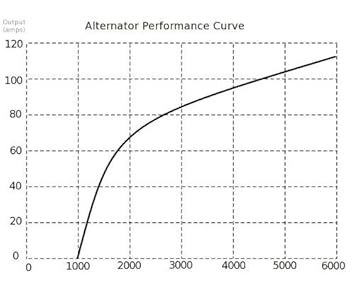I would check the charging voltage. You may have a regulator with crappy voltage compensation for temperature. At zero deg F you should probably be charging at 15 volts and maybe more.
Here is an interesting tutorial on lead acid batteries and temperature:
Temperature Effects on Batteries
Battery capacity (how many amp-hours it can hold) is reduced as temperature goes down, and increased as temperature goes up. This is why your car battery dies on a cold winter morning, even though it worked fine the previous afternoon. If your batteries spend part of the year shivering in the cold, the reduced capacity has to be taken into account when sizing the system batteries. The standard rating for batteries is at room temperature - 25 degrees C (about 77 F). At approximately -22 degrees F (-27 C), battery AH capacity drops to 50%. At freezing, capacity is reduced by 20%. Capacity is increased at higher temperatures - at 122 degrees F, battery capacity would be about 12% higher.
Battery charging voltage also changes with temperature. It will vary from about 2.74 volts per cell (16.4 volts) at -40 C to 2.3 volts per cell (13.8 volts) at 50 C. This is why you should have temperature compensation on your charger or charge control if your batteries are outside and/or subject to wide temperature variations. Some charge controls have temperature compensation built in (such as Morningstar) - this works fine if the controller is subject to the same temperatures as the batteries. However, if your batteries are outside, and the controller is inside, it does not work that well. Adding another complication is that large battery banks make up a large thermal mass.
Thermal mass means that because they have so much mass, they will change internal temperature much slower than the surrounding air temperature. A large insulated battery bank may vary as little as 10 degrees over 24 hours internally, even though the air temperature varies from 20 to 70 degrees. For this reason, external (add-on) temperature sensors should be attached to one of the POSITIVE plate terminals, and bundled up a little with some type of insulation on the terminal. The sensor will then read very close to the actual internal battery temperature.
Even though battery capacity at high temperatures is higher, battery life is shortened. Battery capacity is reduced by 50% at -22 degrees F - but battery LIFE increases by about 60%. Battery life is reduced at higher temperatures - for every 15 degrees F over 77, battery life is cut in half. This holds true for ANY type of Lead-Acid battery, whether sealed, gelled, AGM, industrial or whatever. This is actually not as bad as it seems, as the battery will tend to average out the good and bad times. Click on the small graph to see a full size chart of temperature vs capacity.
One last note on temperatures - in some places that have extremely cold or hot conditions, batteries may be sold locally that are NOT standard electrolyte (acid) strengths. The electrolyte may be stronger (for cold) or weaker (for very hot) climates. In such cases, the specific gravity and the voltages may vary from what we show.
https://www.navitron.org.uk/forum/index.php?topic=12250.0



